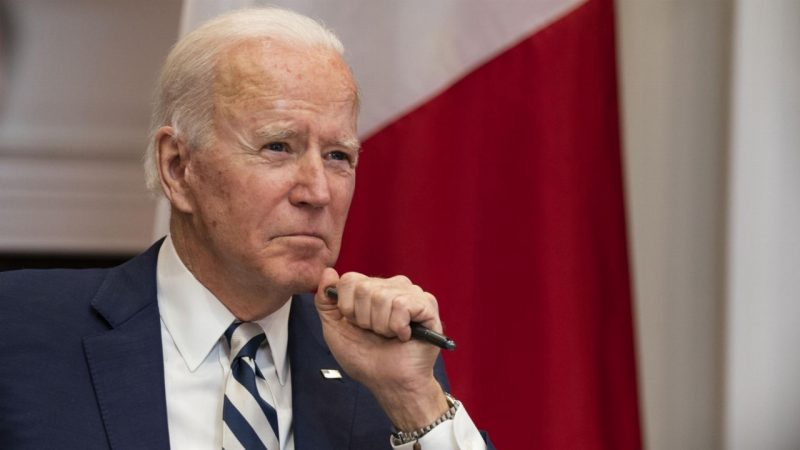- The Biden Administration has imposed sweeping sanctions against Russia for what it has called “harmful foreign activities” from the Russian government
- The move blacklists 32 Russia-linked entities and individuals the U.S. government has accused of trying to influence the 2020 presidential election
- Ten officials from the Russian Embassy in Washington will be expelled from the U.S.
- The sanctions also restrict U.S. banks from buying government bonds directly from the Russian Central Bank
- Amid accusations of trying to influence the 2020 election, influencing foreign governments against the U.S., and violating other principles of international law, the U.S. has also blamed Russia for a major cyberattack last year
- Hackers infiltrated software company SolarWind in March last year and were only caught by one of their victims in December
- Former President Donald Trump blamed China for the attack, while the Biden administration has pegged the blame on Russia
- Russia has responded to this week’s sanctions by warning that retaliation is “inevitable”
The Biden Administration has imposed sweeping sanctions against Russia for what it has called “harmful foreign activities” from the Russian government.
The move blacklists 32 Russia-linked entities and individuals who have been accused of trying to influence the 2020 presidential election, while 10 officials from the Russian Embassy in Washington will be expelled from the U.S.
The sanctions also restrict U.S. banks from buying government bonds directly from the Russian Central Bank and make it difficult for Moscow to raise money in the international capital markets.
The measures were taken under an executive order and make good on President Biden’s presidential campaign promises to hold Russia accountable for a string of illegal international activity.
The White House said in a statement this week the move “sends a signal that the United States will impose costs in a strategic and economically impactful manner on Russia if it continues or escalates its destabilising international actions.”
The sanctions come with a series of accusations against the Kremlin including efforts to undermine the conduct of U.S. free and fair elections, using transnational corruption to influence foreign governments, targeting journalists and dissidents, and violating other principles of international law.
On top of this, the U.S. has accused Russia’s foreign intelligence service, known as the SVR, of orchestrating a major cyberattack in the U.S. by hacking Texas-based software company SolarWinds.
The SolarWinds incident
SolarWind’s computer management and remote monitoring software have around 300,000 customers across the globe, but it was the company’s Orion platform that was the target of the international cyber attack.
Essentially, hackers used Orion to gain backdoor entry into the SolarWind network, giving them access to important data and codes that could be used to sneak into more systems.
The attack was launched in March last year but was only noticed by one of its victims in December.
Former U.S. President Donald Trump blamed China for the attacks at the time, but the Biden administration has pegged the blame on Moscow.
Both the Russian and Chinese governments have denied any involvement in the cyber attack.
However, the European Union have supported the U.S. claims that Russia was behind the attack.
“The European Union and its Member States express their solidarity with the United States on the impact of malicious cyber activities, notably the SolarWinds cyber operation, which, the United States assesses, has been conducted by the Russian Federation,” an E.U. spokesperson said.
Russia hits back
Moscow has not taken to the sanctions lightly, with a Kremlin spokesperson blasting the move this week and saying there will be consequences.
“The United States is not ready to come to terms with the objective reality that there is a multipolar world that excludes American hegemony,” the spokesperson said.
“We have repeatedly warned the United States about there consequence of its hostile steps, which dangerously increase the degree of confrontation between our countries.”
The Russian government warned a response to the sanctions is “inevitable”.
Still, the Biden administration said it desires a relationship with Russia that is “stable and predictable”.
“We do not think that we need to continue on a negative trajectory,” President Biden said.
“However, we have also been clear — publicly and privately — that we will defend out national interests and impose costs for Russian Government actions that seek to harm us.”
U.S. and Russian officials are allegedly working to potentially set up a summit with President Biden and President Putin for the pair’s first face-to-face meeting.

